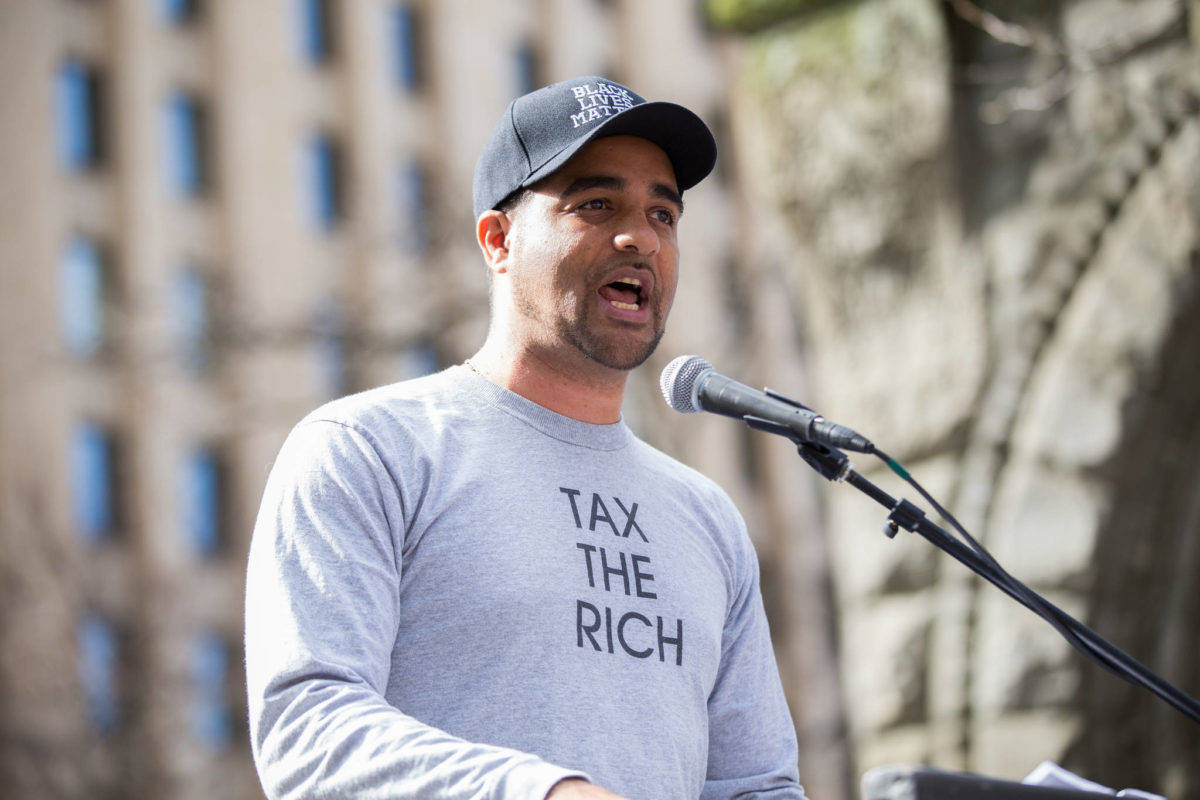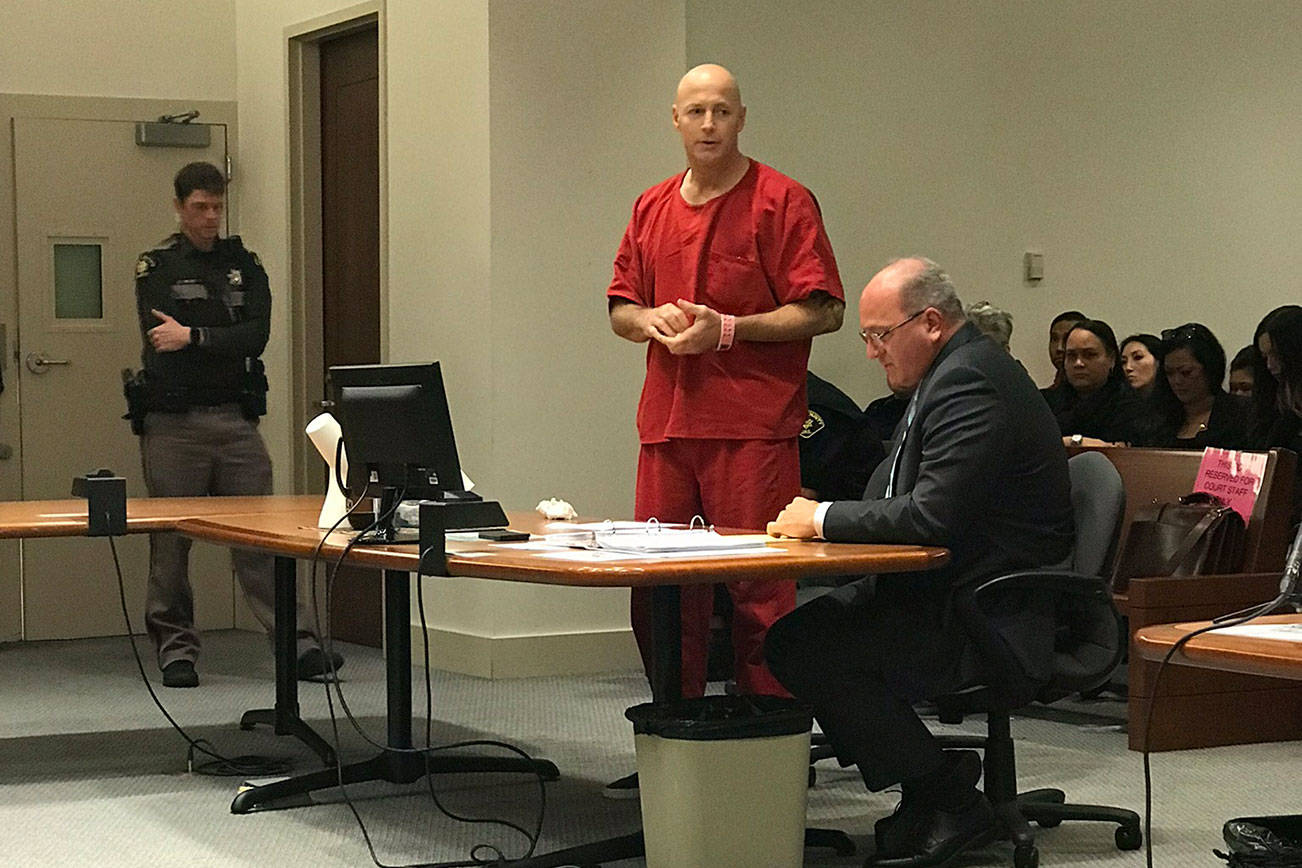On Monday afternoon, the Seattle City Council is slated to vote on a resolution that endorses developing a city-level income tax ordinance, despite the longstanding debate across the state over the legality of income taxes and failed attempts to enact such tax schemes in the past.
The resolution, sponsored by councilmember Lisa Herbold, comes shortly after Mayor Ed Murray endorsed an income tax at a candidates’ forum two weeks ago and said he was going to send the City Council an income tax proposal in the next few weeks. Murray’s endorsement follows several months of lobbying by the Trump-Proof Seattle coalition, a group led by the Transit Riders Union and the Economic Opportunity Institute (a local progressive think tank) who argue that a stable and equitable local revenue source is needed to fund local services to offset potential federal funding cuts. Trump-Proof Seattle has called for a 1.5 percent tax on Seattle resident incomes of over $250,000 which they say will raise $100 million annually.
How did we get here? And will it go anywhere? Here are answers to your most burning questions.
Who’s leading the charge at City Hall?
Who exactly at City Hall has been driving the income tax push is muddled. Herbold has been meeting with members of the Trump-Proof Seattle coalition since their formation, and before that with policy wonks at the Economic Opportunity Institute since she was sworn into office last year. Meanwhile, socialist councilmember Kshama Sawant has also been meeting with the coalition regularly, and, per a Sawant staffer, began drafting her own income tax ordinance in early April (the staffer said that neither Herbold’s office or the mayor’s office have had input on her draft ordinance). Meanwhile, in Murray’s corner, a spokesman told The Stranger that Murray’s income tax proposal “has been in the works for quite some time”; a staffer in councilmember Herbold’s office told Seattle Weekly that the mayor’s office only informed them of Murray’s intent to endorse an income tax the day of. “There’s no evidence that they’ve been working on it for months,” said a Sawant staffer of Murray’s claim.
Who would get taxed? And how much?
The resolution itself leaves a lot of doors open for what direction the council could take a city-level income tax ordinance. It doesn’t specify what type of income the final ordinance will target (such as capital gains, interest, or net income), what percentage of income will be taxed, or what the income threshold for the tax will be. But what the resolution does imply is that the legislative effort is intended to test the legality of a progressive income tax so that, if the eventual ordinance survives likely future legal challenges, municipalities across the state will be able to enact similar tax schemes with strong legal standing. Specifically, it states: “The guiding principle in crafting this legislation will be to chart the strongest possible progressive income tax model, to exercise fully the City’s local authority, and to provide robust progressive revenue tools for municipalities throughout Washington State.” (This language was toned down from the original draft which specifically stated that the future ordinance was intended to “test the constitutionality of a progressive local income tax and the scope of local authority.”)
So this is more symbolic than anything?
No. The resolution also states that the council intends to begin consideration of an ordinance—in collaboration with the mayor’s office—on May 31st and passing said ordinance by July 10th.
OK, then why make such a big deal about fighting in court?
The resolution’s focus on gearing up for a future legal challenge is the result of almost a century of animosity expressed towards local and state-level income tax initiatives by the courts. Per tax policy experts, Washington has the most regressive tax system in the country due to its almost exclusive reliance on sales and property taxes, which disproportionately impact low-income earners, and the state’s lack of a progressive income tax. However, ever since the 1930s, the state has written off an income tax as a viable revenue source due to several state Supreme Court rulings that deemed income taxes to be unconstitutional.
Tell me more about these court rulings.
The structure of our current tax system dates back to the Great Depression when many Washingtonians—especially rural Washingtonians—had little to no income and were feeling the pain from state property taxes. Rural agricultural worker interests (specifically the Washington State Grange) mobilized to lobby for a state income tax in the legislature, only to have then-Republican Gov. Ronald H. Hartley veto legislation that passed out of both the Senate and House. In 1932, a ballot initiative for a state income tax passed by a wide margin, only to be legally challenged and shot down in a 5-4 ruling in the state Supreme Court; the majority argued that a graduated progressive income tax was unconstitutional because income was property and property can only be taxed at uniform rates (this stems from a constitutional amendment passed by the legislature in 1929 which introduced the ‘property must be taxed uniformly’ rule). Still starved for revenue, the state legislature passed a massive tax system overhaul, which introduced Washington’s current tax scheme in addition to an income tax. But, yet again, the Supreme Court wrote off the income tax as illegal with the same argument.
So that’s it? An 80-year-old 5-4 court decision?
No. Since then, income taxes have struggled to make headway in Washington. In 1984 the legislature passed a law that explicitly prohibits cities and counties from taxing net income. In 2010, a voter initiative to introduce a state tax on high earners’ income went down in flames. More recently, in the fall of last year, activists in Olympia launched a ballot initiative that would’ve enacted a city-level income tax on residents earning more than $200,000 in household income. After surviving a legal challenge by the city, the initiative was rejected by the voters.
Some legal experts, however, argue that the state Supreme Court of the 1930s wrongly interpreted the state constitution in their rejection of progressive income taxes and think that the current Supreme Court would be more sympathetic to taxing income.
“If the legislature or if an initiative were to enact an income tax today, I am pretty sure that our state Supreme Court would uphold the constitutionality of that tax,” said Hugh Spitzer, a University of Washington Law Professor, who provided legal counsel to the Olympia ballot initiative. “The view that our court took, that is that income is property, was a minority position nationally,” he added. (In a 1992 University of Puget Sound Law Review article, Spitzer argued that income is fluid and not a stationary asset like land.)
What legal argument could Seattle make for an income tax if challenged?
In addition to the 1930s state Supreme Court rulings and the constitutionality of income taxes, a city-level income tax will likely run up against both the statute explicitly prohibiting cities and counties from taxing net income—it is still unknown, however, what kind of income the future ordinance will tax—and longstanding legal doctrine held by judges in both the King County Superior Court system and the state Supreme Court that municipalities cannot enact taxes without explicit permission written into state law. With the latter two obstacles, the question becomes what kind of taxes are cities allowed to enact and the scope of local authority.
While Herbold’s office is mum on how they plan to craft the ordinance to maneuver around these roadblocks, one possible argument floating around is that city lawyers could argue—if a future ordinance was passed and then challenged in the courts—that cities have wide authority to enact taxes under a different set of statutes. In the portion of state law outlining the powers vested in cities in towns, it states that municipalities have the authority to enact taxes within their territorial limits for local purposes—if constitutional. While this statute doesn’t explicitly give the green light for a local income tax, it does imply that cities have broad internal taxing authority.
Additionally, proponents of a local income tax say there are ways to get around the statute banning city and county taxes on “net income.” Claire Tony, an attorney working for the Economic Opportunity Institute, said that Trump Proof Seattle’s proposal to tax adjusted gross household income (which is defined as all combined forms of income for residents of one home) is not the same as a net income tax, and therefore, not applicable to the statute. “Household adjusted gross income is fundamentally different from “net income,” which is a measure of business income after expenses. The statute does not even define the term “net income” or relate it to households,” Tony wrote in an email.
But that still leaves the issue of the “express statutory permission” doctrine of both local courts and the state Supreme Court—let along the issue of constitutionality. It remains to be seen what exactly the city council and the mayor’s office will come up with for the final ordinance, but a legal challenge is practically guaranteed.








